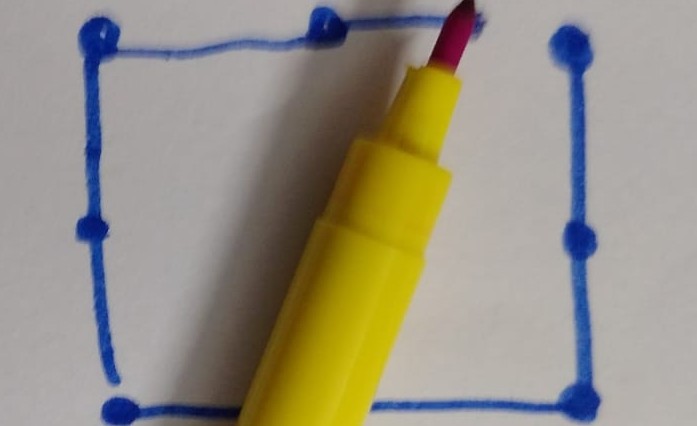Enjoy the Learning Journey: Process Over Outcome for Students

We often hear that it's the destination that matters, but wise voices throughout history offer a different perspective. Mountaineers frequently share that the journey towards the summit, with its challenges and discoveries through treacherous terrain, is often far more rewarding than merely reaching the top.
I remember my own experience trekking to Harkidoon and climbing in the Dharwadhar Range while at LBSNAA, Mussorie in 1989. The process involved ups, downs, sideways movements, stalling, and repeating. Eventually, we reached the peak. The view was awe-inspiring, offering a vast perspective.
What did I learn from that experience? With effort, our life's "mountain peaks" – big goals or achievements – are reachable. But the peak is fleeting. It's a place to savor the achievement, not to reside permanently. Reflecting on reaching it, we understand the journey built our skills, tested our limits, and made the arrival meaningful. Then, we look towards the next mountain.
This concept of valuing the process over just the outcome applies powerfully to all areas of life, including your academic journey. Let's consider examples from Golf and Swimming.
Learning Through Sports: Golf and Swimming
Take the game of golf. My early experiences in Thailand were challenging – wrong practice habits, poor technique, and constant frustration with failed shots made it feel like frustrating work.
However, in the final phase of my golfing journey, at Army Golf Courses, it was different. I began to truly appreciate the process: the early morning dew, the satisfying sight of a divot, the smooth swing, the effortless power when everything connected. Hearing the sweet sound of a clean hit, watching the ball soar and land softly on the green brought immense satisfaction. This transformation shows how the same activity shifts from frustration to deep enjoyment based purely on your mindset towards the process.
Similarly, consider swimming. As a former champion, the initial rigorous daily practice was often tiring. Yet, my perspective shifted. I began to truly enjoy the process itself: the cool water, the rhythmic breathing, the feeling of weightlessness. Early morning swims offered the added pleasure of sunrise and tranquility. Swimming is a fantastic workout, releasing endorphins and acting as a meditative practice. There is immense satisfaction in mastering a new stroke or swimming longer distances. It's a continuous journey of improvement, focusing on progress, not just winning. Training with teammates and sharing the experience also adds to the enjoyment.
These sports examples powerfully illustrate that any activity, including studying, can become a source of joy and fulfillment if approached with a mindset that values the process over solely the outcome.
Connecting the Dots: Finding Purpose and Meaning in Learning

We sometimes view activities like studying as labor because we fail to see how seemingly disparate elements connect, how our current efforts fit into a larger picture, as Steve Jobs observed. If you see math, science, literature, or history not just as subjects to pass, but as investments in essential life skills – tools for understanding the world, problem-solving, critical thinking, and communication – you develop a longer-term perspective.
This is like driving on a foggy night: you see only 20 feet ahead clearly, but you drive with the hope of reaching your destination. That hope, born from seeing the larger purpose, makes the challenging journey manageable and even enjoyable.
If you enjoy what you do, you will never work a day in your life:
For a student, this might sound impossible when facing demanding work. It doesn't mean learning is effortless, but points to a crucial psychological shift. When you find genuine interest or purpose, studying transforms. It feels less like a chore and more like an activity you choose. This fuels intrinsic motivation – a drive from the satisfaction of learning and growing, making you more resilient than focusing only on grades. You might even experience "flow," deep absorption where time flies. Enjoying the process is energizing and connects academic tasks to a larger sense of meaning. It encourages seeing challenges as opportunities, not just obstacles.
Practical Tips for Enjoying Your Academic Journey
By applying the principles of "enjoying the journey" and understanding how studies contribute to your future, you can transform your experience and cultivate a more positive relationship with learning.
Here are practical ways students can find more joy in class life, homework, and assignments:
- Find What Sparks Your Interest: Actively look for aspects that genuinely interest you. Explore different methods, connect with classmates, and engage creatively.
- Example: Imagine living in the historical era you study, or watch a movie in a new language you're learning.
- Embrace Challenges as Growth: View difficult tasks as opportunities to learn and grow. The struggle builds resilience and confidence.
- Example: Think of problems like puzzles; satisfaction comes from the process of solving them.
- Celebrate Small Wins: Acknowledge your progress, however small. Every concept mastered or problem solved is a step forward.
- Example: Reward yourself for completing a difficult task or staying focused.
- Connect Learning to Real Life: Look for how classroom learning relates to the world around you. This makes studies more relevant and meaningful.
- Example: Understanding physics helps appreciate how a roller coaster works; learning cultures broadens perspective for a globalized world.
- Cultivate a Growth Mindset: Believe you can learn and improve through effort. Focus on dedication rather than just the outcome.
- Remember intelligence isn't fixed; consistent hard work, strategies, and dedication lead to progress.
- See the Bigger Picture: Recognize your education is an investment in your future. Skills and knowledge acquired today build opportunities and enrich life down the road.
- Nurture a Positive Attitude: Maintain curiosity, optimism, and enthusiasm towards learning. A positive mindset transforms challenging tasks into engaging experiences.
- Collaborate with Peers: Working with classmates makes learning more enjoyable, less isolating, and helps clarify concepts.
- Seek Help When Needed: Don't hesitate to ask teachers, tutors, or classmates for support when struggling. It's a sign of strength and part of learning.
- Create a Positive Learning Space: Make your study area comfortable, organized, and free from distractions.
- Balance Studies with Life: Carve out time for hobbies, sports, friends, and family. This prevents burnout and maintains well-being, making study periods more effective.
The Wisdom of the Bhagavad Gita
Bringing it back to ancient wisdom, the Bhagavad Gita offers profound insight. Lord Krishna advises focusing wholeheartedly on performing duty (action or karma) without becoming overly attached to the results. This wisdom speaks directly to engaging fully in the process.
This isn't a passive approach; we should strive for excellence. However, it emphasizes focusing our energy on the process – the effort, dedication, and integrity – rather than being fixated solely on the outcome. Becoming overly preoccupied with the result (winning, a specific grade, status) leads to stress, anxiety, discouragement from setbacks, and losing sight of the joy and learning within the process.
I experienced this firsthand. In a state-level aquatics competition, my mind was consumed by the pressure of being defending champion, focusing on winning instead of executing my race plan process. That over-focus destroyed my performance; I didn't even reach third. Similarly, in golf, instead of visualizing a good swing through hazards, I focused on potential negative outcomes and the difficulty of reaching the green. My shot went into the pond.
When our minds aren't worrying about future results (often outside our control), we feel more present and engaged. Being engaged in the process naturally enhances focus, learning, and performance quality. When we value the process, we are driven by genuine satisfaction, not external rewards or fear of failure. Embracing challenges builds mental toughness. When setbacks occur, a process-oriented mindset helps us learn and bounce back, as our value isn't solely tied to the outcome.
By consciously shifting your perspective from being solely focused on the destination (grades, exam results) to also deeply valuing and engaging with the journey (learning process, effort, skills gained), and recognizing how current efforts contribute to a larger future, you can cultivate a more positive, less stressful, and ultimately more fulfilling relationship with your education and all your endeavors.
